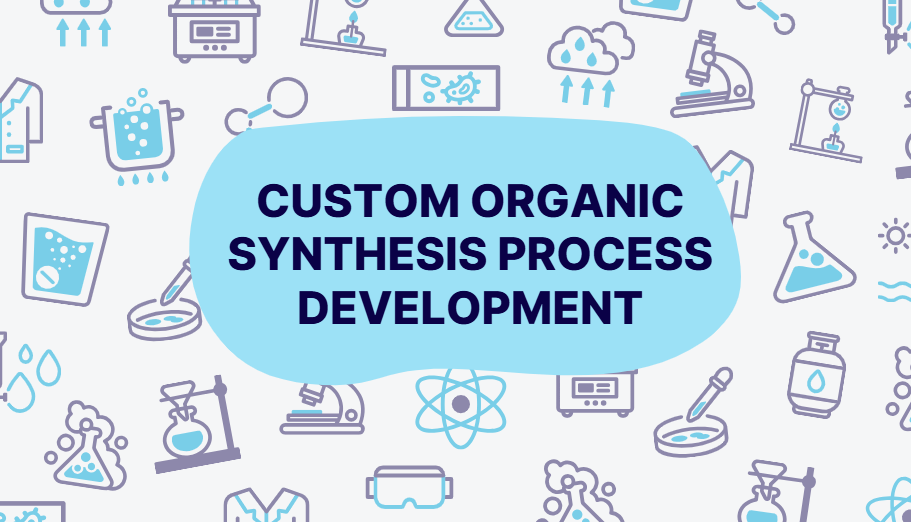Polymer synthesis lies at the heart of modern material science, enabling the creation of diverse materials tailored for a wide array of applications. From everyday plastics to advanced biomedical devices, the ability to synthesize polymers with specific properties has transformed industries worldwide.
In this guide, we’ll explore the fundamentals of polymer synthesis, its methods, and applications, with a special focus on how it supports innovation in material science and industries like pharmaceuticals, packaging, and automotive.
What Is Polymer Synthesis?
Polymer synthesis is the process of creating polymers—large molecules made up of repeating structural units called monomers. These reactions link monomers through chemical bonds to form long chains or three-dimensional networks. The synthesis process is crucial for tailoring a polymer’s properties, such as strength, flexibility, and thermal stability, to meet specific application needs.
For instance, custom polymer synthesis enables the creation of materials for niche applications like drug delivery, where unique properties like biodegradability and biocompatibility are essential [1].
Why Is Polymer Synthesis Important?
Polymer synthesis underpins countless advancements in technology and daily life. The ability to customize polymer properties has applications in:
- Medical Devices: Biocompatible polymers for implants and sutures.
- Electronics: Conductive polymers for flexible circuits.
- Pharmaceuticals: Drug delivery systems with controlled release mechanisms.
- Packaging: Lightweight and durable materials for food preservation.
Custom polymer synthesis also supports the circular economy by enabling the creation of recyclable or biodegradable polymers that reduce environmental impact [2].
Types of Polymer Synthesis
1. Addition Polymerization
In addition polymerization, monomers with double or triple bonds react to form polymers without producing byproducts. This method is widely used to synthesize polyethylene, polystyrene, and polyvinyl chloride (PVC).
Key Features:
- Requires an initiator to start the reaction.
- Produces polymers with high molecular weights.
- Example: Polyethylene, used in plastic bags and containers.
2. Condensation Polymerization
In this method, monomers react to form polymers with the elimination of small molecules like water or methanol. This technique is common for creating polyesters and nylons.
Key Features:
- Produces byproducts during polymerization.
- Used for creating strong, durable polymers.
- Example: Nylon-6,6, widely used in textiles and ropes [3].
3. Emulsion Polymerization
This method involves polymerization in an emulsion, typically water, resulting in latex polymers used in paints, adhesives, and coatings.
Key Features:
- Produces high-molecular-weight polymers.
- Ideal for applications requiring fine particle dispersions.
- Example: Polyvinyl acetate, used in adhesives.
4. Ionic Polymerization
Ionic polymerization uses ionic catalysts to control the polymerization process, allowing for precise molecular weight and structure control. This method is essential in custom polymer synthesis for creating specialized materials like block copolymers [4].
Advanced Methods in Custom Polymer Synthesis
In the era of precision engineering, advanced synthesis methods like RAFT polymerization, atom transfer radical polymerization (ATRP), and ring-opening polymerization have emerged. These techniques allow researchers to create polymers with intricate architectures, such as dendrimers and hyperbranched polymers.
For example, ResolveMass Laboratories Inc. utilizes advanced techniques to create polymers tailored for applications in drug delivery, tissue engineering, and advanced coatings.
Applications of Polymer Synthesis
1. Biomedical Applications
Custom polymers are used in drug delivery systems, prosthetics, and tissue scaffolds. For instance, biodegradable polymers like polylactic acid (PLA) are ideal for sustained-release drug formulations [5].
2. Packaging
Polymers synthesized for lightweight, flexible, and recyclable packaging solutions are critical for reducing waste and conserving resources.
3. Automotive and Aerospace
High-performance polymers like polyimides are synthesized for their exceptional thermal and mechanical properties, essential for lightweight yet durable components [6].
Challenges in Polymer Synthesis
Despite its transformative potential, polymer synthesis faces challenges, including:
- Sustainability: Developing eco-friendly polymers without compromising performance.
- Complexity: Synthesizing polymers with precise molecular architectures.
- Cost: Advanced synthesis methods can be expensive.
The Future of Polymer Synthesis
The future of polymer synthesis is being shaped by innovations in:
- Green Chemistry: Developing sustainable polymers using renewable monomers and eco-friendly catalysts [7].
- Nanotechnology: Synthesis of nanoscale polymers for targeted drug delivery and advanced coatings.
- AI Integration: Predictive modeling for faster and more efficient polymer development.
Why Choose ResolveMass for Polymer Synthesis?
At ResolveMass Laboratories Inc., we specialize in custom polymer synthesis tailored to meet your specific needs. Whether you require biocompatible materials for medical applications or advanced coatings for industrial use, our team delivers innovative solutions backed by cutting-edge technology.
Explore Our Services:
For more information, visit our Contact Us page to learn how we can assist with your polymer synthesis and analysis needs.
References
- Smith, J. et al. Custom Polymer Synthesis for Biomedical Applications. Polymer Science Today, 2022. DOI: 10.1002/pst.345
- Carter, R. Advancements in Recyclable Polymers. Sustainability in Materials, 2021. DOI: 10.1016/sustmat.12345
- Brown, L. Condensation Polymerization in Modern Industry. Macromolecules, 2020. DOI: 10.1007/s10853-020-04567-9
- Green, M. Ionic Polymerization Techniques. Advances in Polymer Chemistry, 2021. DOI: 10.1021/acs.polymchem.1c00123
- White, H. Polylactic Acid and Its Biomedical Applications. Biomaterials Journal, 2022. DOI: 10.1007/s10439-021-05891-y
- Zhao, M. Polyimides in Aerospace Engineering. Materials Science Advances, 2019. DOI: 10.1016/matsci.2019.09876
- Lee, P. Green Chemistry in Polymer Synthesis. Environmental Chemistry Reviews, 2020. DOI: 10.1021/envchemrev.1c00234

